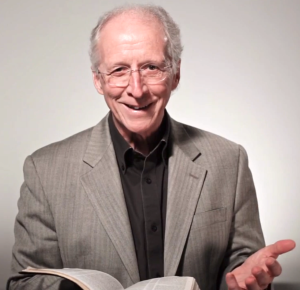 Jonathan Master (PhD, University of Aberdeen) is professor of theology and dean of the School of Divinity at Cairn University. He is also director of Cairn’s Center for University Studies. Dr. Master serves as executive editor of Place for Truth and is co-chair of the Princeton Regional Conference on Reformed Theology. In an article and even many non-Christians pretend to believe – or at least to affirm that something good happened on the night Christ was born. Christmas would hardly seem to be the time to discuss the doctrines of grace. After all, we’re led to believe that Christmas is gloriously broad and Calvinism hopelessly narrow.
Jonathan Master (PhD, University of Aberdeen) is professor of theology and dean of the School of Divinity at Cairn University. He is also director of Cairn’s Center for University Studies. Dr. Master serves as executive editor of Place for Truth and is co-chair of the Princeton Regional Conference on Reformed Theology. In an article and even many non-Christians pretend to believe – or at least to affirm that something good happened on the night Christ was born. Christmas would hardly seem to be the time to discuss the doctrines of grace. After all, we’re led to believe that Christmas is gloriously broad and Calvinism hopelessly narrow.
So why insert such dour doctrines into the broad and beautiful joy we share at Christmas? Well, in the first place, these doctrines are not dour at all, or narrow. They are enlivening and glorious, and their apprehension leads immediately to the kind of overflowing joy we associate with Christmas.
But there is more than that. The reason we should associate Christmas and Calvinism is that Jesus himself does. In John 6, Jesus gives a clear reason for the incarnation. And the incarnation is what we celebrate when we celebrate Christmas rightly. He says this: “For I have come down from heaven, not to do my own will, but the will of him who sent me” (John 6:38). That broad statement of Jesus’ obedience takes further shape in the verses which follow: “And this is the will of him who sent me, that I should lose nothing of all that he has given me, but raise it up on the last day. For this is the will of my Father, that everyone who looks on the Son and believes in him should have eternal life, and I will raise him up on the last day” (6:39-40). Later in the same discussion, Jesus expands on this will of the Father which he came to earth to carry out: “No one can come to me unless the Father who sent me draws him” (6:44). And again, “It is the Spirit who gives life; the flesh is no help at all” (6:63). Finally, in response to the disciples’ questions about those who did not believe, Jesus says, “This is why I told you that no one can come to me unless it is granted him by the Father” (6:65).
Since Jesus’ stated reason for the incarnation is to do the Father’s will, it is worth looking at these teachings in a systematic fashion. First, we learn that no one can come to Jesus unless the Father draws him or grants him this (John 6:44, 65). This is because the Holy Spirit alone gives life and man in his natural state cannot find spiritual life at all; in the flesh, human beings possess nothing profitable in accomplishing salvation (John 6:63). We learn that the Son came to save those who had been given to him (John 6:39). We are told that those drawn, given, and brought to life by the Father actually come: none can resist His transforming grace (John 6:37). And then, perhaps most remarkably, we learn that Christ guarantees that all who come to him in faith, those ones who are given by the Father and transformed by the Spirit, will surely be raised up on the last day (John 6:40).
In other words, when Jesus reflects on his coming to earth, he explains it in terms of the Father’s will in salvation, a will that is displayed against the backdrop of man’s total depravity, God’s unconditional election, Christ’s definite work in salvation, God’s irresistible grace in drawing and giving men to Christ, and the glorious promise that Christ will one day raise up those who look to him in genuine faith. This is what we mean when we speak of Calvinism. And as it happens, it is also what Jesus teaches when he speaks of Christmas.


